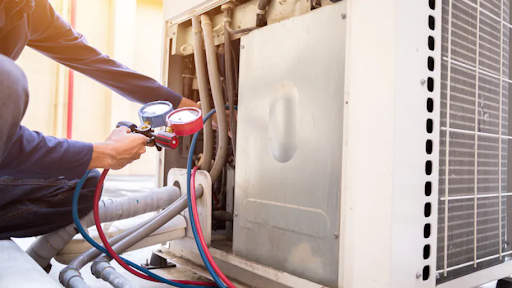The Ultimate Guide to Air Conditioning Maintenance: What You Need to Know
As temperatures rise, ensuring your air conditioning (AC) system operates efficiently becomes crucial. Regular air conditioning maintenance not only enhances the system’s performance but also extends its lifespan, saving you from costly repairs or premature replacements. This guide provides essential insights into maintaining your AC unit and the role of AC contractors in ensuring optimal functionality.
Air Conditioning Maintenance: Essential Practices
Effective air conditioning maintenance involves a combination of routine checks, cleaning, and professional servicing. Adhering to a maintenance schedule helps in detecting potential issues before they escalate, ensuring that your AC system operates smoothly throughout its lifespan.
1. Regular Filter Replacement
One of the simplest yet most impactful maintenance tasks is replacing or cleaning your AC filters. Filters trap dust, dirt, and allergens, preventing them from circulating through your home. Over time, these filters become clogged, reducing airflow and efficiency. Depending on usage and filter type, they should be replaced every 1-3 months. A clean filter improves indoor air quality and enhances energy efficiency.
2. Inspect and Clean Coils
The evaporator and condenser coils are critical components of your AC system. Over time, these coils accumulate dirt, which impedes their ability to absorb and dissipate heat effectively. Regular inspection and cleaning of these coils are essential to maintain optimal performance. Ensure that the coils are free of debris, and clean them using appropriate methods or professional services.
3. Check and Clear Drain Lines
AC units have a condensate drain line that removes excess moisture generated during cooling. This line can become clogged with algae, mold, or dirt, leading to water damage and potential system failure. Regularly inspect and clear the drain line to prevent blockages. Using a mixture of water and vinegar or a commercial cleaner can help maintain a clear and functional drain line.
4. Examine Ductwork
Leaky or poorly insulated ductwork can lead to significant energy losses and reduced cooling efficiency. Regularly inspect your ducts for visible signs of damage or leakage. Sealing leaks and insulating ducts can enhance system efficiency and reduce energy costs. If ductwork issues are suspected, consider professional duct cleaning and sealing services.
5. Verify Thermostat Functionality
The thermostat controls your AC system’s operation, and its accuracy is crucial for maintaining desired indoor temperatures. Regularly check and calibrate the thermostat to ensure it accurately reflects the room temperature. If your thermostat is outdated, consider upgrading to a programmable or smart thermostat for improved control and energy savings.
6. Professional Inspection and Servicing
While routine maintenance tasks can be performed by homeowners, professional inspections and servicing are essential for comprehensive care. Schedule a professional tune-up at least once a year to have a qualified technician inspect your system, address any underlying issues, and ensure all components are functioning optimally.
AC Contractors: Your Partners in Maintenance
AC contractors play a pivotal role in air conditioning maintenance. Their expertise and experience are invaluable in keeping your system in top condition and addressing any complex issues that may arise.
1. Selecting the Right AC Contractor
Choosing a reputable AC contractor is crucial for effective maintenance and repairs. Look for contractors who are licensed, insured, and certified by recognized industry organizations. Check customer reviews and ratings to gauge their reliability and service quality. A reputable contractor will provide transparent pricing, clear communication, and high-quality workmanship.
2. The Importance of Regular Professional Inspections
Professional inspections by ac contractors involve a thorough assessment of your system’s components, including the compressor, evaporator coils, condenser coils, and electrical connections. These inspections help identify potential issues before they become major problems. Technicians can perform necessary repairs, calibrations, and adjustments to ensure your system operates efficiently and safely.
3. Emergency Services and Repairs
In addition to regular maintenance, AC contractors offer emergency repair services. If your AC system experiences sudden malfunctions or breakdowns, a reliable contractor can provide prompt assistance to restore functionality. It’s beneficial to establish a relationship with a trusted contractor for emergency situations to minimize downtime and discomfort.
4. Energy Efficiency and System Upgrades
AC contractors can also advise on energy efficiency improvements and system upgrades. If your system is outdated or inefficient, they can recommend modern solutions such as high-efficiency units, smart thermostats, or advanced filtration systems. Upgrading your system can result in significant energy savings and improved comfort.
Conclusion
Effective air conditioning maintenance is vital for ensuring your system operates efficiently and reliably. By regularly performing maintenance tasks and relying on professional AC contractors for inspections and repairs, you can extend the lifespan of your system, enhance energy efficiency, and avoid costly breakdowns. Adopting these practices will help you enjoy a cool and comfortable environment throughout the year.






